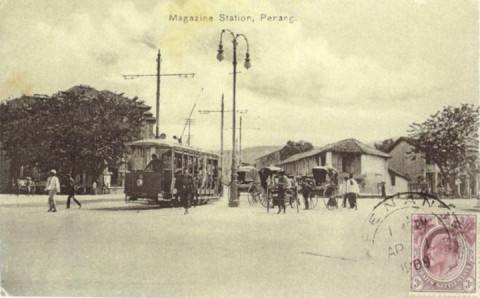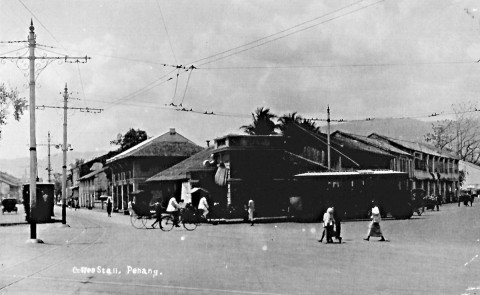In July, the Sultan of Selangor ordered assemblymen to pass amendments giving him more power over Islamic affairs.

PETALING
JAYA: Selangor state assemblymen are seeing red with what appears to be
royal intervention in the running of the State Legislative Assembly.
In July, every state assemblyman allegedy received a letter from
Sultan Sharafudin Idris Shah, commanding them to agree to amendments
that would supposedly give the Ruler more power over Islamic affairs.
Pakatan Rakyat state assemblymen suspect that the hand of Umno was
behind the move, which they say could have led to a constitutional
crisis.
One, who spoke under condition of anonymity, said they saw the letter
on their desks at about 9:30am when they attended the July 11 state
assembly sitting.
The letter was accompanied by a Selangor government gazette with
proposed amendments to the Administration of the Religion of Islam
(State of Selangor) Enactment 2003.
“We did not know what to do,” the assemblyman told FMT. “We were
totally shocked. It was a very delicate situation. If we went against
it, it would have caused a constitutional crisis.
“The Sultan is supposed to act on the advice of the state government,
not the other way around. Even in the matters of Islam and Malay
culture, the Sultan has to act on the advice of the state
administration.
“We didn’t want to fight the palace, we had respect for the palace. We let it pass.”
He added that if the assembly had snubbed the letter and voted
against the proposed amendments, it would have been played to the hilt
by both the mainstream media and the Umno-led state opposition.
Sultan’s letter
A copy of the letter was given to FMT by an anonymous sender. It was
issued from the Alam Shah palace in Klang on July 11 and has the
Sultan’s signature on it.
“As the head of Islam in the state, I am responsible for ensuring
that the administration of Islam in the state operates smoothly and
effectively,” the letter reads (
see below).
“Therefore, I command all Yang Berhormat Members (of the Selangor
State Assembly) to agree with the proposed amendments presented and
approve the Bill so that these proposed amendments can be implemented
immediately.”
A letter from the Sultan’s private secretary, Mohamed Munir Bani, to
state assembly secretary Mohamad Yasin Bidin was also provided to FMT.
It reads: “I respectfully present the decree of His Majesty the
Sultan of Selangor… to be distributed to all Selangor State Assemblymen
immediately.”
The proposed amendments would:
- Make the administration of all mosques and suraus fall under the purview of the Selangor Islamic Religious Council (MAIS).
- This responsibility was previously held by the director of Selangor Islamic Religious Department (JAIS).
- Give the Sultan the right to directly appoint anyone to the post of MAIS secretary.
- Remove the need to record in verbatim every resolution and policy made during MAIS meetings.
- Require all practising Syariah lawyers in the state to be Muslim.
- Require cheques issued by MAIS to be drawn according to its own financial procedures.
- Remove the need for MAIS and any corporation established under the
Enactment to adhere to provisions in the Statutory Bodies (Accounts and
Annual Reports) Act 1980.
- Give MAIS the power not only to collect zakat and tithes, but also to distribute it.
- Give MAIS the power to appoint anyone as mosque officials.
- Give MAIS the right to control and direct the duties of mosque committees.
There were 22 clauses stated in the provided gazette, with amendments to 21 sections within the Enactment.
Phone call from palace
Another assemblyman, who also spoke to FMT anonymously, said that the
proposed amendments were initially made available at a state
pre-council meeting, a “few days” before July 11.
According to him, many state assemblymen present at the meeting were unhappy with the bill and hotly debated the details.
“They voiced their displeasure at the bill,” he said. “They felt they
should have been consulted first because of its importance.”

Menteri Besar Khalid Ibrahim, according to the assemblyman, said he was troubled by the introduction of the amendments.
“The MB requested that the bill be kept in abeyance pending further study.”
The Selangor mufti, state legal adviser and aides to the various
assemblymen were also at the meeting, according to the assemblymen.
“The MB asked the officers to leave and the assemblymen to stay to discuss the bill.”
Halfway through the discussion, the assemblyman said, Khalid had to
step out to take a call from the palace. Apparently, the displeasure of
the state assemblymen had been conveyed to the palace.
“The MB did not make it clear what the palace had said, but the
assemblymen took the cue, and understanding his (Khalid) predicament,
did not pursue the postponement of the bill.”
According to the assemblyman, the Sultan exceeded his powers when he
ordered assemblymen to pass the amendments. Nevertheless, the bill was
passed after three readings.
One of FMT’s sources said he expects to see royal influence expand to “unknown arms at this juncture”.
Umno, he said, was “definitely” behind the letter from the palace. He
claimed that MAIS was staffed by “a number of Umno or pro-Umno people.”
Umno’s hand
A Pakatan Rakyat leader, who asked to remain anonymous, also said he suspected that Umno had pushed the palace.

“The Sultan has been advised by Umno for 50 years,” he said. “This put His Majesty in a very difficult situation.
“This was a ploy by Umno to put Pakatan at loggerheads with the Sultan.”
He defended the Sultan as an “objective” person, but said Mohamad
Munir, being pro-Umno, had made it difficult for Khalid to get an
audience.
Sungai Panjang state assemblyman Mohamed Khir Toyo claimed ignorance
of the matter, while Seri Serdang assemblyman and state opposition
leader Mohamad Satim Diman could not be contacted.
Semenyih state assemblyman Johan Aziz scoffed at Pakatan’s claim that Umno was behind the Sultan’s letter.
“Everything is about Umno, even floods, although it’s from God,” he
said. “It’s all Umno, Umno, Umno. All the good things that Umno does,
they never talk about.”
However, Johan declined to comment on the Selangor government’s alleged loss of power through this episode.














